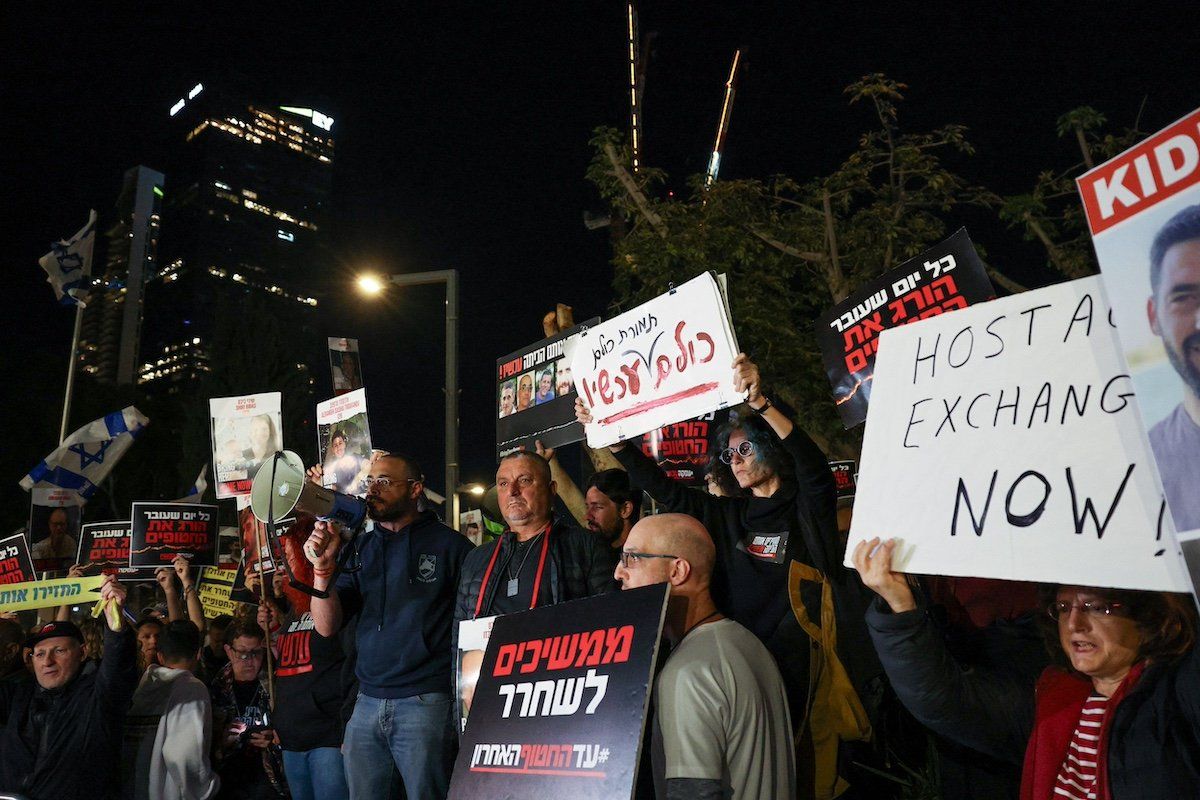Israelis are reeling from the Friday deaths of three hostages who were killed in Gaza when Israel Defense Force soldiers opened fire on the young men even though they were shirtless and waving a white flag. According to an Israeli military official, the IDF’s actions were “against our rules of engagement” and are under investigation. Herzi Halevi, chief of the military’s general staff, stated that “this shooting was done during fighting and under pressure” but added that Israel has the obligation to get hostages out alive.
That call was echoed by families of the 129 hostages still in captivity who joined thousands of Israelis in the streets demanding a new hostage deal and a diplomatic resolution to the conflict. “Gantz, Gallant, Netanyahu, we elected you, now heed our calls and the tremendous suffering of the hostages and approve the framework for a deal right now,” said speaker Shir Segal, daughter of hostage Keith Segal.
Will this be a turning point in the war? Israeli Prime Minister Benjamin Netanyahu said Saturday that the killings “broke my heart, broke the entire nation’s heart,” but he said they would not change Israel’s commitment to “complete victory” and to dismantling Hamas. For its part, Hamas official Osama Hamdan said it will release no hostages until the war ends and Israel accepts its conditions for an exchange of 7,000 Palestinian prisoners, which Netanyahu said is a non-starter.
Internationally, however, calls are mounting for a cease-fire. France’s Foreign Minister Catherine Colonna called for an "immediate and durable truce,” citing the high level of civilian deaths. Over 18,700 Palestinians have been killed, 70% of them women and children, and most of Gaza’s 2.2 million people are displaced with half facing starvation.
On the same basis, British Foreign Secretary David Cameron and his German counterpart, Annalena Baerbock, published a joint article in the Sunday Times calling for a “sustainable cease-fire.” But the two stopped short of using the word “immediate,” arguing that negotiating a lasting ceasefire was more important than calling a quick one that could fail.
Against this backdrop, US Defense Secretary Lloyd Austin began a multi-day trip to Israel, Qatar, and Bahrain on Saturday. Austin intends to affirm Washington’s support for Israel’s right to self-defense but also to discuss the next phase of Israel’s engagement in Gaza, including how it intends to mitigate civilian harm. We’ll be watching for the impact of both Israel’s anguish and US allies’ about-face on those discussions.
